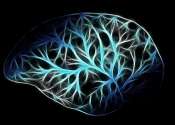Researchers show how to target a shape-shifting protein in Alzheimer's disease
A new study suggests that it is possible to design drugs that can target a type of shape-shifting protein involved in Alzheimer's disease, which was previously thought to be undruggable.
Nov 4, 2020
0
30









